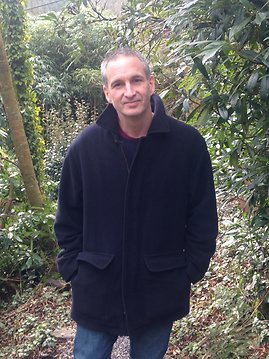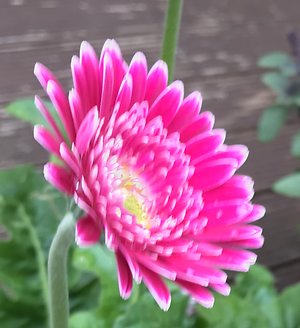Are you addicted or not?
Drinking alcohol, taking drugs, gambling, gaming, sex, looking at porn or eating lots of food… most people start doing these things because they enjoy them. At the time, they make us feel good.
The choice of substance or behaviour will depend on a number of different factors including cost, social status, availability and peer pressure. After a while it can become habitual. We do it more and more frequently. We do it in secret. It takes up more time and more money. Before we know it has become more important to us than any other part of our life. This is the path to addiction simplified.
Once addicted, we become reliant on something that we used to do for pleasure, in order just to feel ‘normal’. We find ourselves unable to stop once we start, and reach a stage where we are unable to live normally either with or without it.
By this stage the addict may still be able to escape from reality for a short time through their addiction, but never in the same way as they did at the beginning. That sense of ease and comfort that was once felt can never be found again in the same way. Life becomes a never-ending chase for pleasure, but ends up filled with chaos and disappointment. Our ‘friend’ has turned against us, and is taking up more and more of our life. The one thing that helped us control how we felt is now out of our control and no longer gives us what we want.
Loneliness and isolation, low self-esteem, depression, anxiety, loss of family and friends, financial difficulties, physical or psychological damage and ultimately death. These are all consequences of addiction. Once in the downward spiral it can seem like there is no way out. Addiction will not stop at anything and will take everything worthwhile from you if it is allowed to. Addiction can feel like being stuck in a lift that only goes down.
This animation describes addiction very well
I can help you recover from addiction. Why not get in touch.
So, what causes addiction
Opinions vary as to whether people are born with an addictive personality ie there is a genetic connection. Others say that it is circumstantial, a learned behaviour or just a path people choose.
In my experience – both professional and personal – I have found addiction to be a symptom of underlying emotional problems. Addicts generally want to escape from feelings or emotions that make them feel uncomfortable and by the time they have become addicted, they will have no more of an idea what caused it than anyone else.
Addiction can be brought on by anxiety, depression, low self-worth, the loss of someone close or other traumatic events in our lives. Any of these could make us want to find a way of escaping from how we feel. It is like taking a medicine that takes away the feelings of discomfort. But although it works at first, it then turns around to bite us back and starts that downward cycle. Our addiction leads us back to increased anxiety, trauma, depression, loneliness, isolation, low self-worth and much, much more.
The idea of getting clean, drying out or stopping can feel impossible, because it no longer feels normal to be free of the chosen behaviour or substance, it actually feels like a frightening situation to be in. Even if an addict is able to stop for a while, they are still facing all the uncomfortable feelings and problems they were running away from. This can cause endless relapses.
The fact is that it is very difficult to achieve long-term abstinence without outside help. If the addict doesn’t have another way of dealing with uncomfortable feelings, then they are likely to find another fix to fill the hole that has been left behind. This can lead to relapse or switching to other addictions.
What sort of people become addicts?
Addiction knows no boundaries and affects people from all walks of life in every country around the world. Addicts are not bad people, they have lost their way and become victim to a mental and physical obsession that is stronger than their willpower can deal with.
In my experience, addicts have normally lost their sense of identity and their self-belief. There can be many reasons for this, but the longer the addiction continues the more engrained these feelings of worthlessness become. At the same time, an addict will be trying to put on a brave face for the rest of the world, trying to convince everyone (and themselves) that everything is ok.
We hide addiction as well as we can because of the stigma. We don’t want to be seen as weak. Inside though, there is a feeling of not belonging, of loneliness, of not being understood. So the addict has a low sense of self-worth. In order to recover, that is where the change needs to take place to readdress the balance.
How do addicts recover?
Addicts often consider recovery for various reasons, but only take any real action when the next thing they are about to lose is more important to them than the addiction – for example a relationship, their house, a job, their health, their freedom or their life. This can be enough to start people on their way, but others will not be able to see a way out and will continue to pursue the addiction until they die. It does not have to be that way, call me.
'The curious paradox is that when I accept myself just as I am, then I can change.’
Carl Rogers (1902-1987)
Acceptance of how bad things have got and the willingness to ask for help are important in order for you to begin recovery. In cases of physical or severe dependency, a medical detox may be necessary. The most important work starts once this has been done and the ‘fog’ has cleared. Recovery from addiction means change. Not - as some would have you believe – by changing who you are, or taking away your identity. But by helping you to rediscover the person that you really were all along and enabling you to become the person that you want to be.
Recovery is a journey of discovery: - There is a way out. Get in touch with me
I have recovered from addictions and now have a life which is beyond anything I ever dared hope for. I have happiness in my life in a way that I never thought possible.
There is however no quick fix for addiction. Perhaps that is the hardest part, especially because as addicts we have always sought the ‘quick fix’. That is why for some people, the recovery journey needs to start in a residential rehab. Most rehab centres use group work and one to one therapy over a period of weeks or sometimes months. They want to enable their clients to return to a life in society without needing to revert back to their old addiction, whether it was escape through the ‘thrill’ of a bet, the ‘high ‘ of a crack pipe or the ‘oblivion’ of heroin, benzos or alcohol.
They generally recommend aftercare – which I can provide – or participation of further groupwork such as 12 step or SMART groups.
How can counselling with me help you?
I help people in their recovery from addiction by exploring what it was that pushed them towards using alcohol or other substances/behaviours as a way of escaping from life. I help them to understand and accept whatever it was that made them do it for so long.
These are the things that we would explore during counselling sessions and together we can help you to build a better, more meaningful life.
Connection with others in positive ways – such as peer groups, trustworthy friends, and the community. 12 step fellowships can be good for this and I would answer any questions you have about them. I also understand that they are not suited to everyone and SMART recovery groups are an alternative. While you might be apprehensive about being in a group, be aware that addiction likes to get you on your own and wants to isolate you. You will find that there is nothing like hearing from others who are going through what you’re going through.
Hope and optimism – I will help you see that there really is a better life to work towards, and give you enough motivation to change old ways and have dreams and goals for the future.
Identity – Rediscovering your sense of self-worth and identity, becoming authentic and genuine – being the person you are meant to be. This could be by revisiting old hobbies and pastimes or trying new ones .
Meaning and Purpose – Living a meaningful life to regain self-worth. I would encourage you to join in with something, such as a team or a group of likeminded people. Some people find meaning through employment or voluntary work, while others find spirituality important.
Empowerment – Asking for help is not a weakness. It gives you strength. Together we will work on what your weaknesses are and help you face your fears and use your strengths to move forward. I will help you to find the inner strength that you have and tap into it.
Exercise and relaxation – We would talk about ways of relaxing and dealing with uncomfortable feelings. I will help you face any fears you have around reconnecting and socialising.
Knowledge – I would appropriately share my own experience and knowledge of addiction, in order to help you find your way.
I offer aftercare for those who have been in residential rehab and counselling to those who think they may have an addiction problem.
My personal experience?
I have personal experience of addiction and recovery. I have recovered from addiction to alcohol, drugs and gambling, and have seen many others recover from addiction and alcoholism in ways that seem like nothing short of a miracle. We have all escaped from a seemingly hopeless state of mind and body. Some had lost everything, been in prison or asylums, some were close to dying. We now all live fuller, richer more contented lives. We have discovered a way of living that means that we no longer feel the need to run away. There really is a way out. I am more than 10 years free from the bondage of addiction.
Click here to arrange a no obligation first session.


